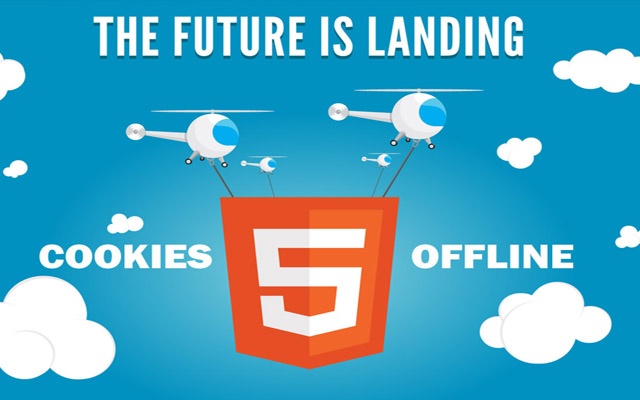 Web-based applications are a wonderful thing: They give you the ability to access your information anywhere, anytime, using any internet-enabled device. Take for example a web-based LMS, like eFront: You can access your learning content from work using your laptop, from your smartphone using a mobile network or from your tablet using your home’s wifi.
Web-based applications are a wonderful thing: They give you the ability to access your information anywhere, anytime, using any internet-enabled device. Take for example a web-based LMS, like eFront: You can access your learning content from work using your laptop, from your smartphone using a mobile network or from your tablet using your home’s wifi.
But there’s a catch: You need to have an active internet connection to actually use the application. No internet availability where you are? What a pitty, all this information you needed right now is unavailable.
But here comes HTML5 on the rescue again! With its wonderful offline application mocapabilities, one doesn’t need to be connected to access the desired content! But how does this magic work?
Put simply, an offline-enabled web page, provides a description file, the Manifest, that informs the browser of the files that are needed for the current page to function. The browser then proceeds to download and store these files. When the same page is requested and an internet connection is not available, the browser will seamlessly present the “downloaded” page, allowing for the user to continue working.
EfrontPRO takes this functionality a step further, allowing for a student to preemptively download a whole lesson for offline access, even if he/she hasn’t actually accessed it. The process is more than simple:
- The professor enables “offline support” from the lesson’s settings page.
- The student can now see an “offline” icon on the lesson’s dashboard. Clicking on it will download all of the lesson’s content and resources for offline viewing
- At any point that the user tries to access the system without an active internet connection, the system will automatically switch to offline mode, listing the available lessons for offline access
- When an internet connection is available again, the user will be presented with the option to switch back to online mode
Finally, it’s worth noting that the resources made available for offline access can be anything, from text and images to videos and complex SCORM packages. Offline support is available and has been tested in all modern browsers and operating systems, including iOS and Android devices.